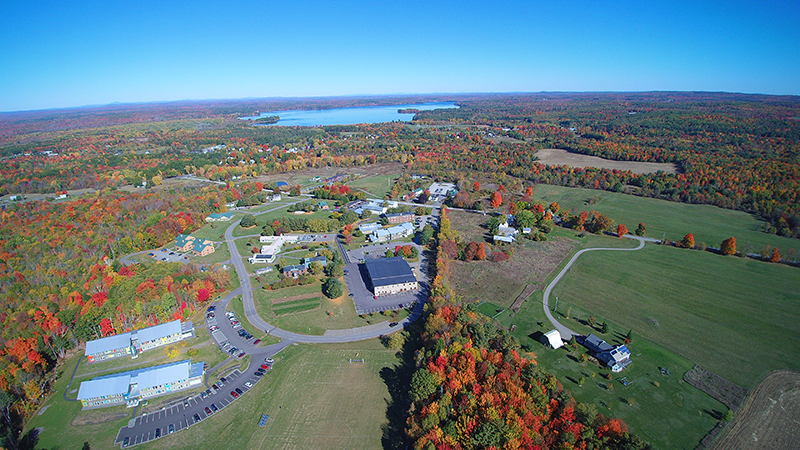Two new Master’s in Professional Science tracks expand strong Unity programs from undergraduate to graduate learners
Unity’s burgeoning distance education initiative continues to expand its offerings with two new tracks of study within the Master’s in Professional Science: Conservation Law Enforcement and Environmental Geographic Information Sciences.
The specializations both offer an advanced version of two strong initiatives within Unity’s unique sustainability science curriculum in an affordable, flexible format for professionals seeking to advance their careers while working full-time or at a distance from the residential campus in Maine.
“These new tracks really allow us to take what we’re decidedly good at, what the college is known for, and expand it to adult learners,” Chief Distance Education Officer Dr. Amy Arnett said. “We’re expanding our sustainability science mission to a broader audience.”
For over 40 years, Unity College has played a key role in developing and educating conservation officers working all over the United States. As officers progress in their careers, or want to gain extra experience for management positions, a Master’s degree from Unity College will help them get the educational insight they need to be successful administrators.
While each course within the Conservation Law Enforcement track has a general focus that you may find in other management and leadership courses or criminal justice graduate degrees — organizational structure, public policy, ethics — Unity’s coursework was specifically developed by experienced conservation law professionals and vetted against the scope of work of senior management officials in conservation enforcement agencies. At Unity we recognize that conservation enforcement is unique when compared to other enforcement agencies as it requires all the skills of law enforcement in addition to the skills needed to carry out these duties in the fields, forests, and on the waters of the United States of America.
In recent years, geospatial information via our phones, cars, cameras and watches such as GPS data, LIDAR, satellite imagery, and aerial photography has completely transformed the way we view the world, make assessments and decisions, and conduct business — including all realms of environmental research. Geographic Information Systems (GIS) and Remote Sensing are both powerful tools for gathering and analyzing spatial data, which every field that examines the environment and nature-environment interactions is becoming increasingly dependent on.
Professionals already working in or intending to work in the environmental sciences will be able to meld the two technologies in Unity’s online Master’s in Professional Science Environmental GI Sciences track. Hands-on experience through online projects and research will engage students in course activities and allow for increased comprehension of the science, concepts, and skills they need to become leaders in their chosen environmental fields. At the culmination of the GI Sciences program, students will produce a professional portfolio for current or potential employers, demonstrating an ability to write a project proposal, create a project budget, and conduct research to solve real-world environmental problems.
Both online master’s programs are unique to Unity, and directly incomparable to other programs across the country. The Master’s of Science in Conservation Law Enforcement stands apart with its primary focus on working conservation officers looking to advance their careers. Master’s in GIS programs are already few and far in between, and Unity’s Master’s in GI Sciences will be the first in the nation to be based entirely online.
“A world with more Unity College graduates is a world on track for environmental innovation,” President Melik Peter Khoury said. “We remain committed to bringing our curriculum to those who seek it — no matter their location, schedule or occupation.”




